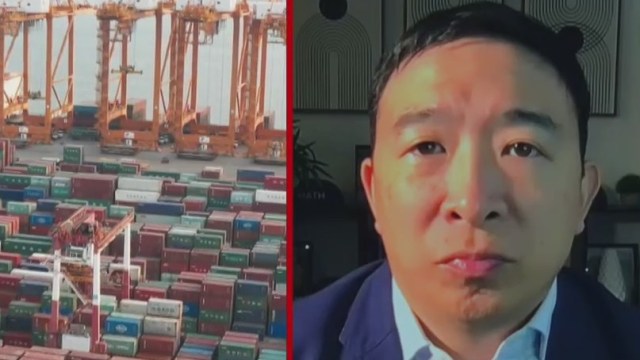Pedaling on the Brink: US Bike Makers Cry Foul Over Potential Tariff Tsunami
Companies
2025-05-01 15:09:42Content

In a proactive move to support the cycling industry, the national bicycle advocacy group People For Bikes has submitted a formal request for targeted exemptions covering bicycles and related accessories. The organization aims to alleviate potential economic challenges facing bicycle manufacturers and retailers by seeking special considerations in current trade regulations.
People For Bikes is leveraging its extensive industry connections and policy expertise to argue for strategic exemptions that could help protect and potentially stimulate the bicycle market. By highlighting the environmental and health benefits of cycling, the association is making a compelling case for why bicycles should receive special treatment in trade discussions.
The request underscores the growing importance of cycling as both a sustainable transportation option and a significant economic sector. With more Americans embracing bicycles for recreation, fitness, and commuting, the proposed exemptions could provide critical support for manufacturers, retailers, and cycling enthusiasts across the country.
Industry leaders are closely watching the development, anticipating that these potential exemptions could help maintain competitive pricing and ensure continued innovation in bicycle design and manufacturing.
Cycling Advocacy: Navigating Tariff Challenges in the Bicycle Industry
In the complex landscape of international trade and transportation infrastructure, bicycle manufacturers and advocacy groups are confronting unprecedented challenges that threaten the accessibility and affordability of cycling equipment across the United States.Breaking Barriers: A Critical Examination of Bicycle Trade Regulations
The Economic Landscape of Bicycle Imports
The global bicycle market faces significant disruptions as trade associations like People For Bikes intensify their efforts to secure critical exemptions from restrictive tariff policies. These proposed regulations could dramatically reshape the economic ecosystem of bicycle manufacturing and distribution, potentially impacting consumers, retailers, and manufacturers alike. Intricate trade dynamics have created a challenging environment where imported bicycle components and complete bicycles are subject to increasingly complex taxation structures. Manufacturers are grappling with rising production costs, which could ultimately translate into higher prices for end consumers.Advocacy and Strategic Intervention
People For Bikes has emerged as a pivotal organization in navigating these regulatory challenges, employing sophisticated lobbying strategies to protect the interests of bicycle manufacturers and enthusiasts. Their comprehensive approach involves detailed policy analysis, strategic negotiations, and targeted advocacy campaigns designed to influence legislative decision-making. The organization's primary objective centers on securing targeted exemptions that would mitigate the financial burden imposed by current tariff frameworks. By presenting compelling economic and environmental arguments, they aim to demonstrate the broader societal benefits of maintaining an accessible and affordable cycling ecosystem.Technological and Economic Implications
The potential tariff modifications extend far beyond simple economic considerations. They represent a critical intersection of technological innovation, environmental sustainability, and transportation infrastructure development. Bicycle manufacturers are increasingly investing in advanced materials and design technologies that could be significantly impacted by regulatory changes. Advanced composite materials, precision engineering techniques, and innovative manufacturing processes are at the forefront of contemporary bicycle design. Any regulatory intervention that increases production costs could potentially stifle technological innovation and limit consumer access to cutting-edge cycling equipment.Environmental and Urban Mobility Considerations
Beyond economic metrics, the ongoing regulatory discussions highlight broader conversations about sustainable urban transportation. Bicycles represent a critical component of environmentally friendly mobility solutions, offering low-carbon alternatives to traditional transportation methods. The potential increase in bicycle equipment costs could have cascading effects on urban mobility strategies, potentially discouraging bicycle adoption in metropolitan areas seeking to reduce carbon emissions and improve transportation infrastructure.Global Market Dynamics
International trade relationships and complex supply chain networks play pivotal roles in shaping the bicycle industry's future. Manufacturers must navigate intricate global economic landscapes, balancing production costs, regulatory compliance, and market competitiveness. The ongoing negotiations and potential policy modifications represent a delicate balancing act between protecting domestic manufacturing interests and maintaining a competitive, innovative global marketplace for bicycle equipment.RELATED NEWS
Companies

Wall Street Jitters: Corporate Guidance Vanishes as Tariff Tensions Spark Investor Uncertainty
2025-04-19 18:15:39
Companies

Tariff Puzzle: Yang Calls for Economic 'Time Warp' to Untangle Trade Chaos
2025-04-09 02:27:19
Companies
Breaking Boundaries: Life Time Clinches Spot on Fast Company's Elite Innovators Roster for 2025
2025-03-18 20:58:00





